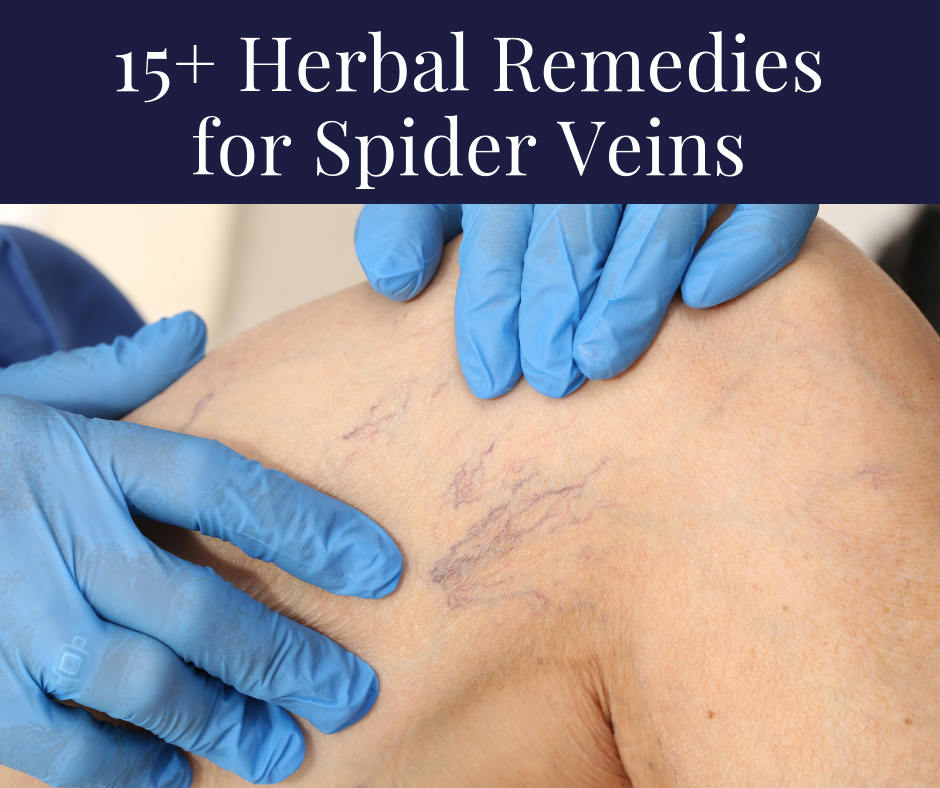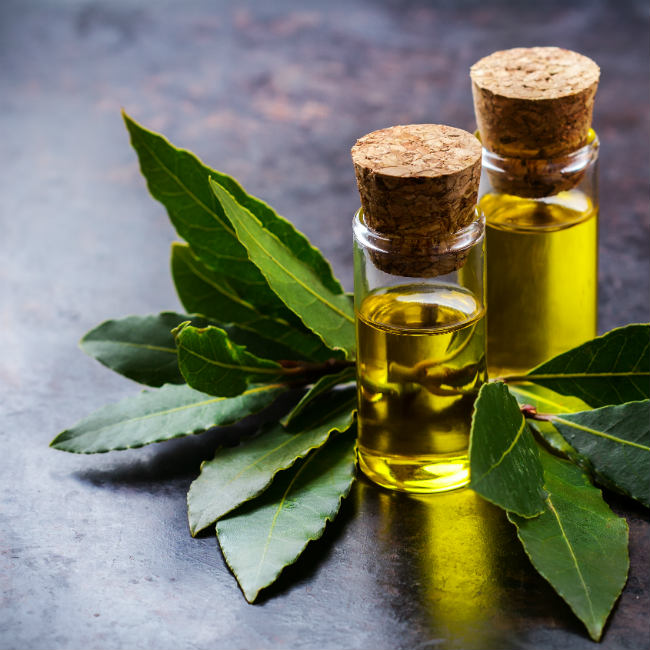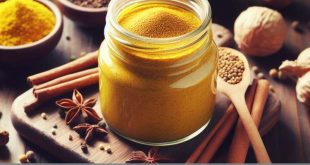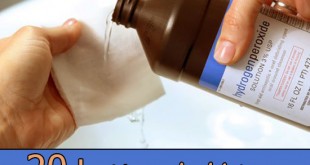15+ Herbal Remedies for Spider Veins
Spider veins may be little, but they can be annoying and embarrassing. They are smaller than varicose veins, which helps to lessen their obviousness, but spider veins can still knock at your self-esteem. Unlike varicose veins, these are closer to your skin’s surface, and they look just like a spider web. You’ll notice a mix of jagged and short lines on your hands or arms.
Spider veins can also appear on your face, covering small or large areas on your body. These unsightly veins appear either blue or red in color. They are typically caused by sun exposure, hormonal changes, and injuries, but backed up blood can also cause them. Over 45 percent of men and women will experience them throughout their lives!
Don’t fret. Some herbal remedies may help to lessen spider veins on your body. Here are a few choices, as well as a few other tips to try to reduce spider veins.
Horse Chestnut Extract
Horse chestnut extract contains aescin, which stops the release of the enzymes that can cause damage to the walls of your capillaries. Many people find that this extract can improve chronic venous insufficiency which is similar to spider veins. You should only use this remedy if you have an extract; whole horse chestnut should NOT be consumed!
Basil
Basil has dozens of medicinal uses as well as culinary uses, making it a powerhouse herb. It contains a large amount of vitamin K which plays a role in blood vessel health. Vitamin K keeps calcium flowing and helps prevent the blood from backing up, which could lead to spider veins.
The vitamin K in basil helps in thrombin production. It is a clotting protein that ensures your blood flows properly into healthy veins.
Lemon Oil
Doctors often tell patients to consume citrus fruits, such as oranges and grapefruit, to strengthen the vein walls. Lemon oil offers similar benefits. Try massaging lemon oil onto your spider veins and the areas surrounding them. Doing so once a day helps to reduce swelling and improves blood circulation in the area. Any backed up blood gets worked out of the veins, and you might notice a difference in your spider veins.
Pine Bark and Grape Seed Extract
These two extracts both contain an antioxidant called oligomeric proanthocyanidin complex. Try saying that three times fast! This complex helps to strengthen your blood vessel connective tissues and decrease inflammation. Exposing your spider veins to these extracts may help to minimize them and stop them from coming back.
However, anyone taking a corticosteroid should NOT take these extracts, nor should anyone taking immune-suppressing drugs or anyone with an autoimmune condition.
Evening Primrose
Evening primrose is a known anticoagulant, so it helps to promote a healthy circulatory system. Using evening primrose will help to reduce clotting, and it helps to reduce inflammation in your blood vessels. Without the inflammation, the vessels are flexible and dilated. All of these factors reduce the backup of blood, allowing spider veins to resolve and stops new ones from developing.
Black Currant
Some people have luck reducing spider veins by the use of black currant. Blackcurrant can reduce and slow the formation of new ones because it improves blood circulation. It also increases diuresis, which cleanses the blood and body, and reduces inflammation! One way to use the black currant leaves is by making an infused water and drinking it throughout the day. Simply add two to two and a half teaspoons of dried leaves to your water and allowing to steep before straining.
Those who struggle with heart failure or kidney failure should stay away from black currant.
German Chamomile
Most people associate German chamomile with sleep aid benefits, but it is also a powerful anti-inflammatory agent. German chamomile is particular has significant antiplatelet properties, so it fights against unnecessary blood clotting. Because of this, anyone who has clotting disorders or taking medication to prevent clots should speak to their doctor before using this herb.
The best way to take German chamomile for spider veins is by creating an herbal tea. Add two teaspoons of dried flowers to a cup of boiling water. Allow the herbs to steep, covered, for 10 to 15 minutes before straining. Covering ensures any anti-inflammatory oils don’t evaporate in the steeping process.
Bay Leaves
Chances are you have bay leaves in your spice cabinet waiting to go into a pot of soup. You also can use bay leaves for spider veins because they are rich in vitamins, minerals, and antioxidants. You can combine with extra virgin olive oil to pull the nutrients from the bay leaves. Simply soak the leaves in the oils for a few days, then strain. You can rub this oil on your skin; it moisturizes as well as it reduces spider veins.
Other Tips for Reducing Spider Veins
Aside from herbal remedies, there are other treatments that might help to reduce or eliminate spider veins on your body. A few you should try are:
- Try drinking or consuming ginger to thin your blood and lower your blood pressure.
- Eat spicy foods which break down fibrin, which is the lumpy materials around your veins.
- Sleep on your back with legs elevated to reduce leg pressure
- Try massaging, walking, and toning exercises to improve circulation.
- Don’t sit with crossed legs because it can cause leg strain.
- Avoid too much salt or smoking because it impedes circulation.
- Create a compress or swab onto the skin with cotton balls. Some ingredients you might like are:
- Witch hazel, an herbal astringent
- Mustard Oil
- Grapeseed Oil
- Pine Bark
- Apple Cider Vinegar
Spider veins can be embarrassing, even though they are extremely common. No one likes to have them, and not everyone can afford things such as laser treatment to get rid of them off of your skin. Home remedies often work, and they are inexpensive and relatively easy to use. So, before you turn to expensive treatments, give a few herbal remedies for spider veins a try. You never know – they might save you thousands of dollars!
 Home and Gardening Ideas At home and Gardening ideas we believe inspiring readers about homesteading, self sufficiency
Home and Gardening Ideas At home and Gardening ideas we believe inspiring readers about homesteading, self sufficiency








